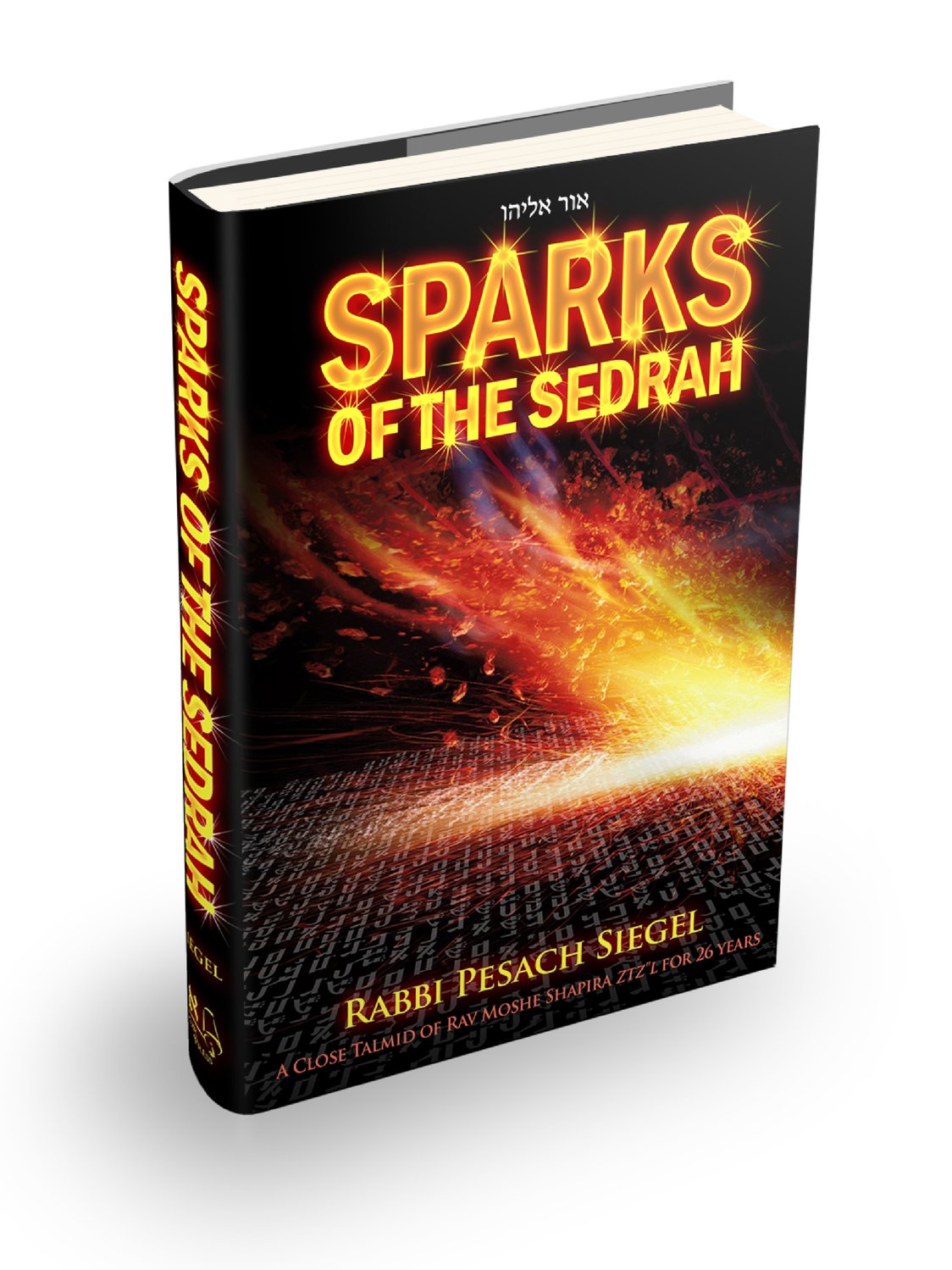Finding the sedra’s sparks
In his highly spiritual introduction to this commentary on the weekly Torah parsha, the author, Rabbi Pesach Siegel informs us of the following:
“The name of this sefer, ‘Sparks of the Sedrah — Ohr Eliyahu,’ means a great deal to me. The Talmud is replete with the mention of Eliyahu’s name. Specifically, we are told that Eliyahu will be the one who will solve all the perplexing mysteries that were left unanswered. Eliyahu is the prime candidate for such a role. He is the one who bridges two worlds. He never dies. He was not buried. He is at the same time an angel and a man with a physical presence. There are some secrets of the Torah that can be revealed in a natural process by a Torah student, but there are mysteries that can only be brought into this world by someone who can reach into the heavenly realms and bring them down into our lowly existence.
“Thus the actual ‘fire’ is in the heavens. We connect to this fire by the illumination of the ‘sparks’ that emanate from the fire and pierce our world.”
This teaching goes to the heart of the author’s spiritual message to us, his readers, and now also his students.
Rabbi Pesach Siegel was born and bred in Chicago, Illinois and studied in the high school, beis midrash and kollel divisions of Telshe Yeshiva for twelve years, receiving his semicha. His mentors were Rav Mordechai Gifter, Rav Chaim Stein, and Rav Avraham Chaim Levin, all of blessed memory, and Rav Chaim Dov Keller, sheyichyeh. He was active in Project S.E.E.D. the summer kiruv program of Torah Umesorah, for six years.
In 1986, Rabbi Siegel and his family made aliyah and moved to Har Nof in Jerusalem. For the next twenty years he merited to learn by Rav Moshe Shapira zt’’l. For the past twenty-five years, Rabbi Siegel has been teaching in yeshivot geared to post-high school American students, starting out in Yeshivat Ohr Yerushalayim in Moshav Beit Meir and presently at Yeshiva Tiferet in Bayit Vegan in Jerusalem.
His published works include a sefer on Mesechet Makot and the book under review in this essay, Sparks of the Sedrah, published by Adir Press this year. Rabbi Siegel lectures frequently, and much of his content can be seen on Torah-Box.net and Torahanytime.com
Sparks of the Sedrah, according to the author, is a journey into the depths of Torah where, based on the teachings of Rav Shapiro zt’’l, Rabbi Siegel attempts to resolve difficult questions gleaned from the weekly Torah readings, “weaving together seemingly unrelated threads and coming out with a magnificent tapestry of understanding — and invites the student/reader to join in this spiritual journey.”
I present to you below a brief example of this method for your learning pleasure, culled from the chapter titled, “Twelve Loaves To Feed Twelve Tribes.”
* * *
“There are two things that stand out about Egyptian culture: First, it was paradise on this earth. Every pleasure and wish was found therein. Second, through the power of kishuf [magic, here referring to forces of impurity], the Mitzriyim [Egyptians] seemed to be able to control their own destiny by bending nature to their will.
“The sum total of their culture was the opposite of everything the Hashem wished to reveal in this world…”
Further on we learn of the following: “They were attempting to draw the world away from its Creator, but the Jews stood in the way.”
This teaching draws us into a deeper appreciation of the central events that govern our religious faith unto eternity, that being, the Exodus experience that plays itself out in the holy writ, in our daily ritual observances and in our weekly and festival calendars.
Consider the following: “Shabbos, in particular, is the antithesis of the Egyptian belief system. By observing Shabbos, we attest to Hashem’s mastery over creation. We acknowledge that He is the Creator and Sustainer of all existence.”
And further on, we come to learn the following: “On Har Sinai it was revealed that Hashem is not merely the strongest of all powers, but rather, He is everything.”
The above is but a small sampling of teachings that make this book so special and a great lead into the Shavuot holiday.

 47.0°,
Mostly Cloudy
47.0°,
Mostly Cloudy 




